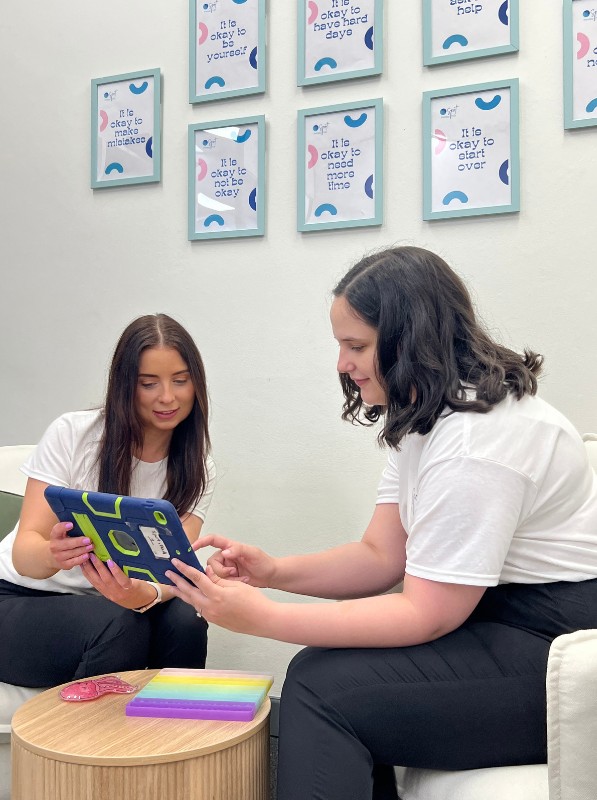


Speech Pathologists are often associated with their expertise in communication, but their skills extend far beyond words. They are also specialists in the intricate and critical domain of feeding. From supporting newborns to collaborating with medical teams and lactation specialists to aid mothers with breastfeeding or bottle feeding, Speech Pathologists play a vital role in ensuring safe and effective feeding. Their expertise encompasses a wide range of age groups and conditions, including children facing challenges in transitioning to solids or diverse textures, older school-aged children with picky eating habits, and individuals with swallowing disorders (dysphagia) resulting from disabilities or neurological events like strokes and Alzheimer’s Disease. In essence, Speech Pathologists are the go-to professionals for anyone seeking guidance on safe and efficient eating and drinking.

Exploring the 5 Phases of Swallowing:
1. Pre-Oral Phase: This initial stage is all about the anticipation of eating and drinking. For some individuals, specific characteristics of food can be the reason they resist certain items. Children with sensory difficulties, for instance, may find foods with particular colours or smells unappealing. Speech Pathologists excel in identifying these food patterns and supporting parents in expanding their children’s food choices to ensure a well-rounded and nutritionally balanced diet. Their strategies may include food play and creative ways to introduce novel foods in an engaging and non-threatening manner.
2. Oral Phase: The oral phase is a voluntary stage of swallowing where we chew and manipulate our food and drink into a cohesive bolus (a ball of food) that is ready to be swallowed. While most of us take this phase for granted, it’s a complex interplay of the tongue, teeth, lips, jaw, and saliva management. Any breakdown in these components can lead to issues such as drooling, avoidance of specific textures, or difficulty in clearing each swallow completely. Some children may need explicit instruction on how to use their tongue during feeding, such as lateralizing it for proper chewing. For older clients whose motor planning or muscle strength has changed due to a neurological event, Speech Pathologists assess and provide rehabilitation therapy or compensatory strategies to ensure safe eating and drinking. They also identify physical barriers like tethered oral tissue (e.g., tongue tie) and collaborate with other healthcare professionals, including dentists, to deliver oro myofacial therapy that benefits feeding, speech production, and sometimes breathing.
3. Pharyngeal Phase: This stage involves the involuntary swallow reflex, activated when the bolus touches the faucial pillars at the back of the mouth. During this phase, several safety mechanisms are initiated to prevent food and drink from entering the windpipe. Speech Pathologists are an integral part of the medical team performing procedures like Modified Barium Swallows/Videofluroscopy, which use X-rays to track the journey of food from the mouth to the pharynx. Based on these assessments, Speech Pathologists make recommendations for rehabilitation exercises, compensatory techniques, or alterations in food textures to ensure safe consumption and prevent aspiration, a serious condition where food enters the lungs and can cause infections.
4. Oesophageal Phase: While Speech Pathologists don’t directly manage issues in this stage, their role is essential in ruling out swallowing problems in the previous phases and making appropriate referrals to gastroenterologists for further investigation.
In summary, Speech Pathologists are not only language experts but also invaluable allies in the realm of feeding. Their commitment to ensuring individuals can eat and drink safely and effectively reflects their dedication to improving the overall quality of life. For more informative content, visit our website at spottherapyhub.com.au or reach out to us at spottherapyhub@gmail.com. Additionally, don’t miss our engaging podcast, ‘The Spot Therapy Hub Podcast,’ available on Apple Podcasts and Spotify, for deeper insights into these critical subjects.